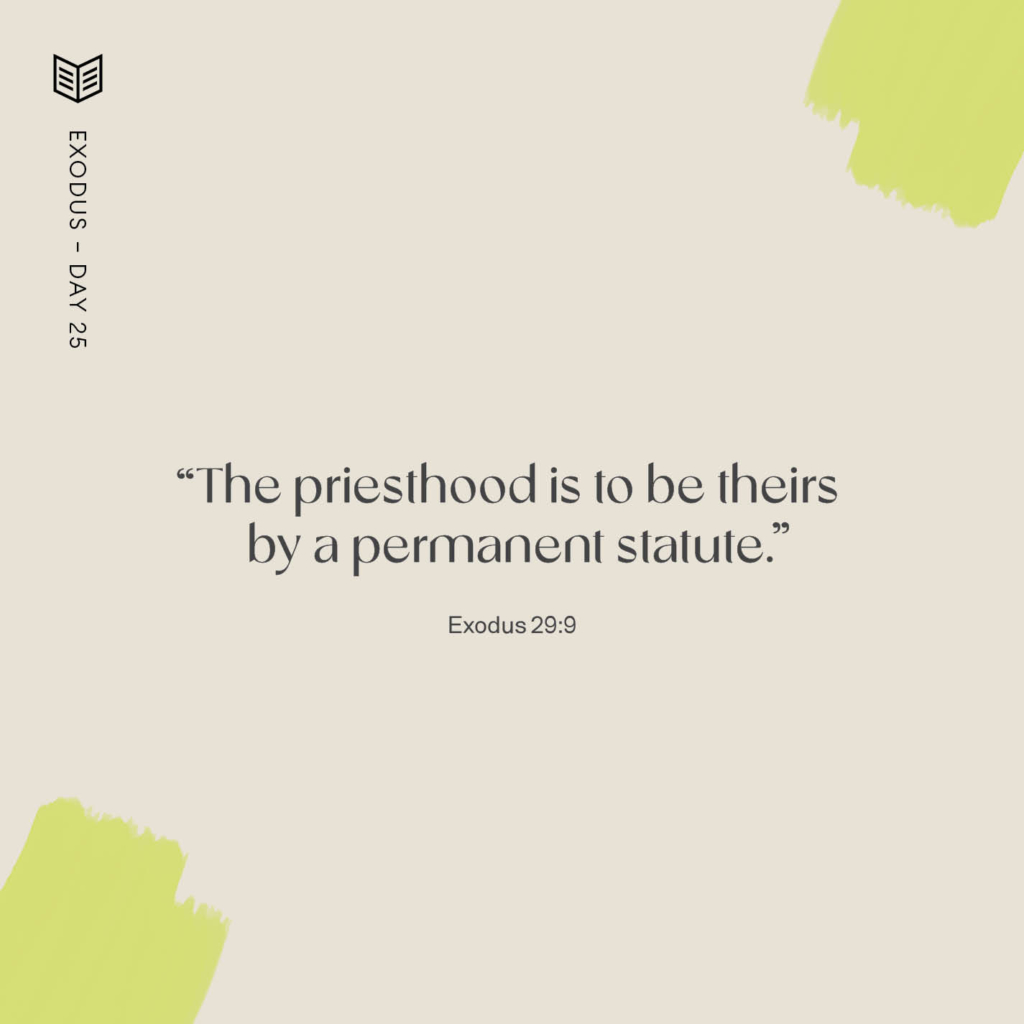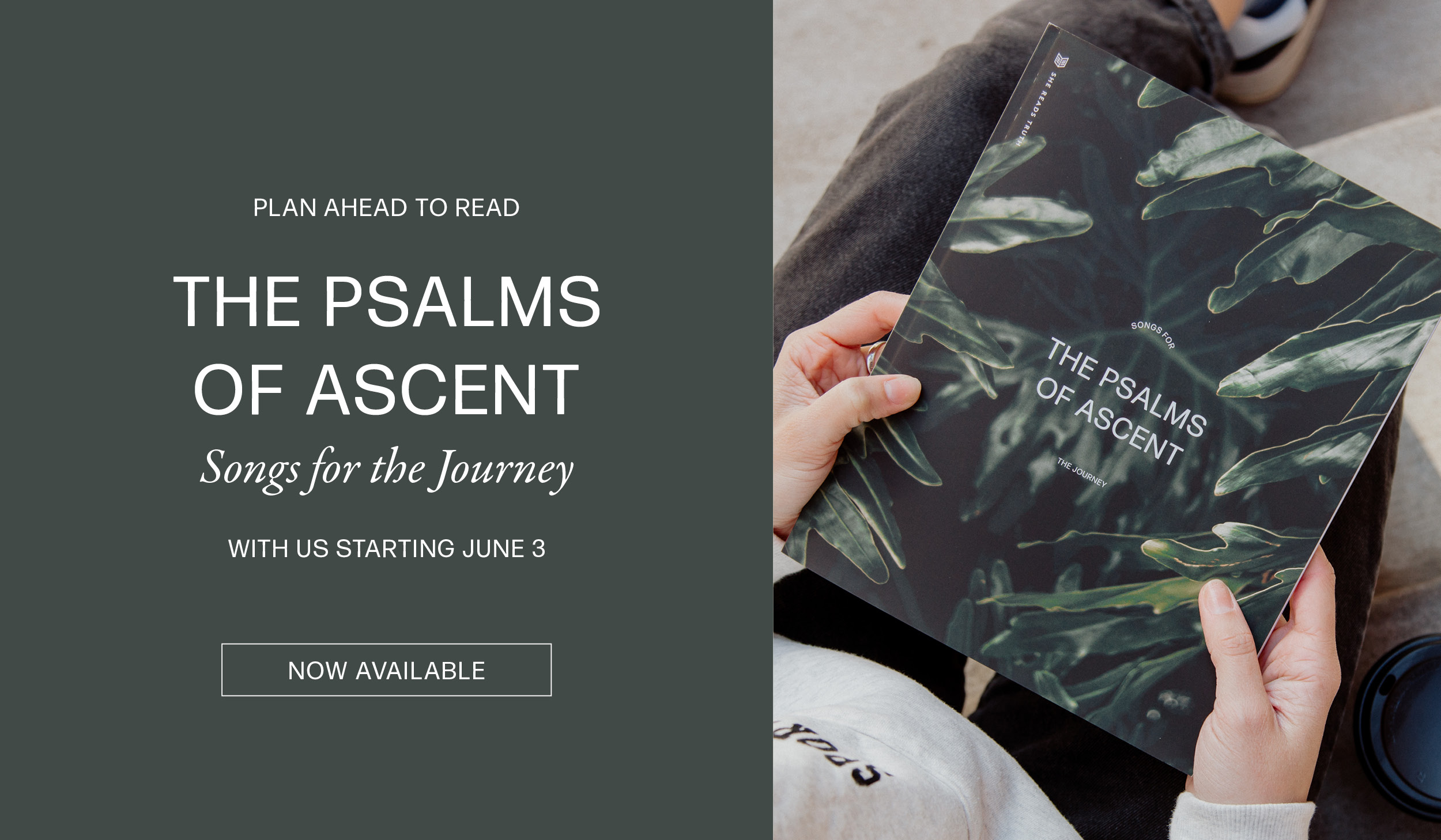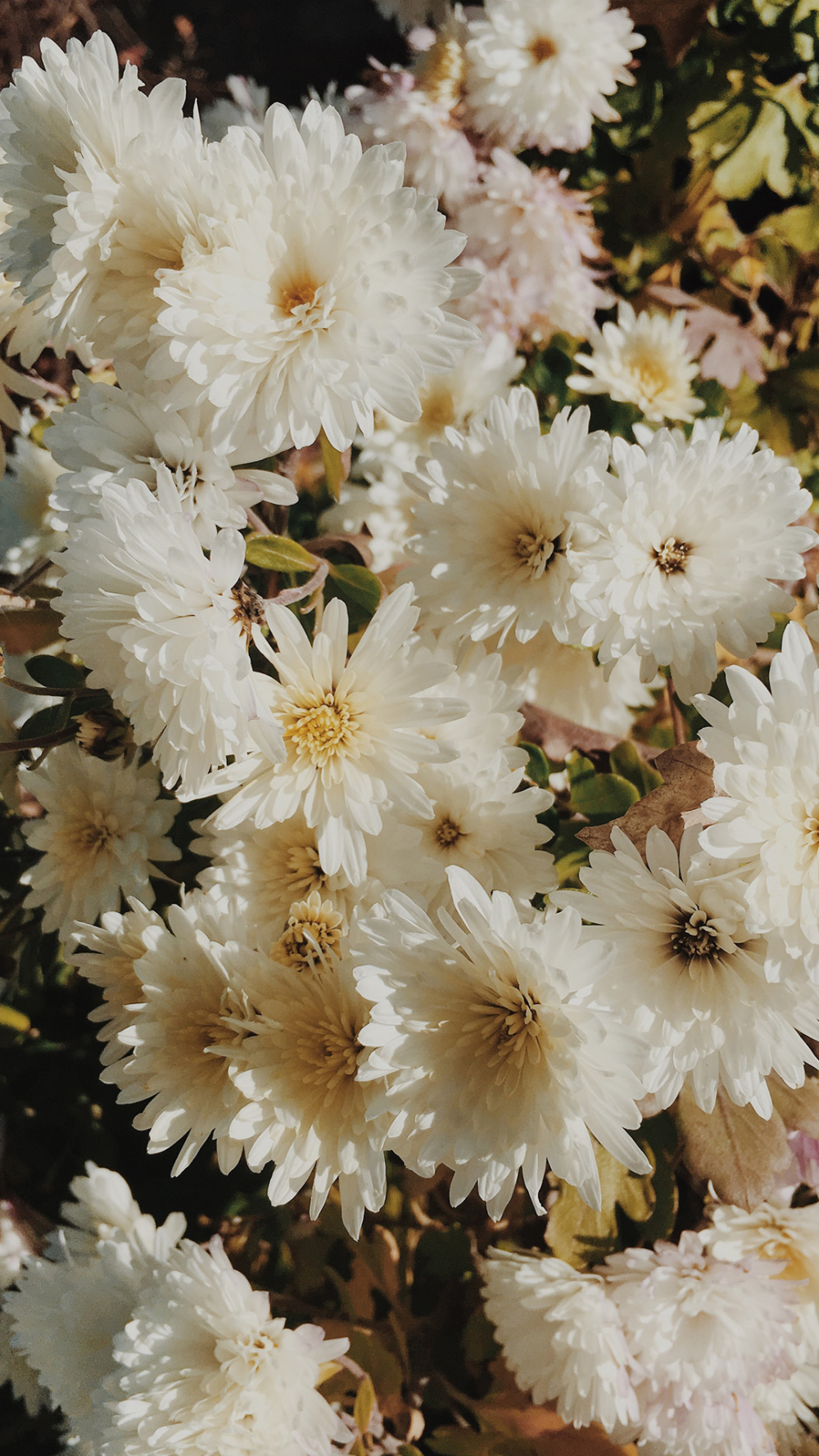In his poem “How to Be a Poet,” Wendell Berry says, “There are no unsacred places; there are only sacred places and desecrated places.”
Because God created all things—the heavens and the earth—we know this is true. All is inherently sacred. Only sin and evil can destroy and desecrate. All humans bears the imago dei, the image of God. However, today’s passage in Exodus also shows us the importance of consecration to God. The Faithlife Study Bible describes how the Hebrew word used in Exodus 29:1, qadash, “refers to being holy or making something holy.” “The concept of holiness fundamentally indicates separation,” says Faithlife. “Someone or something is set apart for sacred use, as opposed to ordinary use.”
We might think about it this way: Redwood forests stretching along the Pacific Northwest are made by our creator God. They stand as sentinels for us to feast our eyes on. They house birds and other living organisms. They contribute to the flourishing of the Pacific Northwest ecosystem. Each tree, needle, and pine cone has mostly ordinary uses.
But when God instructs His people with a specific task, like preparing a sin offering or ordaining someone to the priesthood, ordinary things are suddenly used for sacred purposes, as we see in today’s act of consecration after the establishment of the Mosaic covenant. Bread cakes and burnt rams become a holy, “pleasing aroma” (Exodus 29:22–25). Garments become holy after being sprinkled with blood (v.21). An altar becomes “especially holy” (v.37).
When Aaron and his brothers are selected as priests, they are now ordinary men set apart for sacred use. They are holy. “The priesthood is to be theirs by a permanent statute,” Scripture tells us (v.9). This new role is meant to be a lasting one, the evidence of God’s redeeming work making its way through His people, moment by moment, beginning in Scripture’s opening pages to the very end. Jesus now holds this role of the High Priest, the One “exalted above the heavens” and the only One truly capable of removing our sin (Hebrews 7:26).
Being set apart by God is not something we take lightly but a sacred and holy calling. Thankfully, we have the testimony of Jesus Christ and the power of the Holy Spirit to help us walk this calling out faithfully. Thanks be to God.

Leave a Reply
37 thoughts on "Instruction for Consecration"


I’m right there with you Maria Baer! I can’t help wondering how they got the stains off of their priestly garments as well.
In scripture it says Aaron and his sons. I don’t know why it says brothers in the Devo.
So true Kelly I bet the altar smelled awful but I’m sure inside the tent of meeting it smelled nice and was free of flies since incense was always burning.. the smoke keeping the flies away and the smell of the incense improving the odor
Consecration is the act of solemnly dedicating something or someone to a special service or purpose. As Christians, we are consecrated to the Lord. Our entire life should be fully devoted to God. In order to be consecrated to God, we must:
1. Be born again.
-Be cleansed of our sins.
-Be clothed with Christ’s righteousness.
-Be anointed with the Holy Spirit.
-Have our minds renewed & transformed.
2. Meditate on Christ’s sacrifice.
-His sacrifice atoned for our sins.
-His sacrifice was a propitiation for us — He died the death that we deserve.
3. Seek deeper sanctification (holiness) because of Christ’s sacrifice & the Holy Spirit’s presence in our lives.
-Commune with God.
-Disciple the next generation of believers.
-Receive Christ into ourselves.
-Submit to Christ’s reigning over our lives.
-Find our satisfaction in Christ.
-Continue our relationship with God.
-Fellowship with God — meet with God and allow Him to talk with us.
This is not a one moment occurrence. We must realize that every day and every hour we are given belongs to God. We must dwell with God continuously.
Exodus 29:36-37 NLT
[36] Each day you must sacrifice a young bull as a sin offering to purify them, making them right with the LORD. Afterward, cleanse the altar by purifying it; make it holy by anointing it with oil. [37] Purify the altar, and consecrate it every day for seven days. After that, the altar will be absolutely holy, and whatever touches it will become holy.
They were to cleanse the altar and purify it – not sure how they did that but the scripture says it was to be cleansed so it was absolutely holy. I am thinking that means it was to be made very clean.
Kelly, what a good observation. I was thinking how disgusting must the altars be with blood being thrown on the sides. I had not known or previously thought about the altar being so filthy. I think hearing about them growing up in the church had me focused on the sacrifice and not what the altar was like. So true the smell and sight shows the evil of the world.
We are set apart from the world for a Holy use by God. We are made as all other humans – ordinary and with a purpose, but when we choose to follow God and believe in Jesus, our purpose becomes more specific and we should live as such – in a Holy way that fulfills Gods desires for us.
Blood everywhere. In the desert heat, the smell had to have been overwhelming. What about the flies? What a picture of the fallen world. Among all the beauty the was the tabernacle, its furniture, and the priestly garements was the stench and gore.
I don’t recall reading where wondering Israel would have obtained the flour, olive oil and wine required for the offerings. They probably traded with other nations, but I don’t recall any mention of that while the wondered for 40 years.